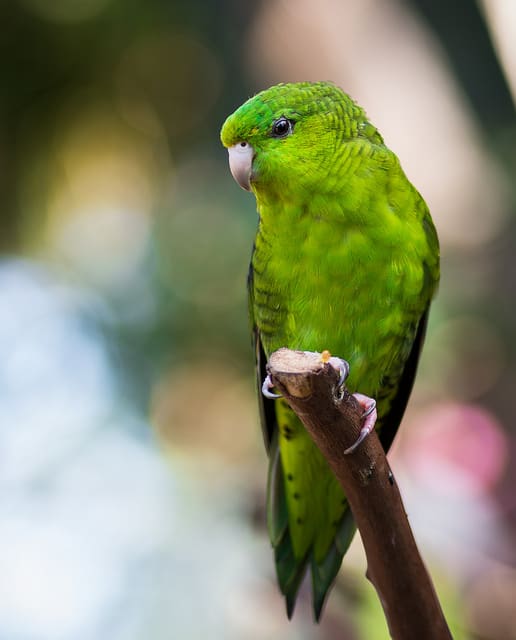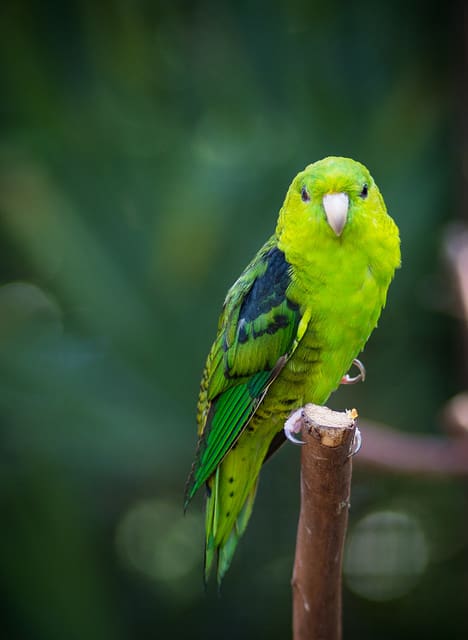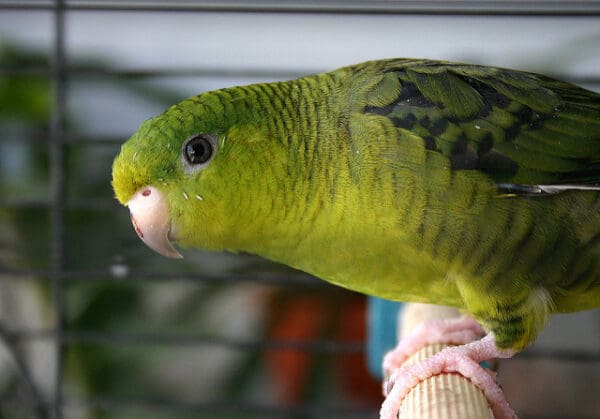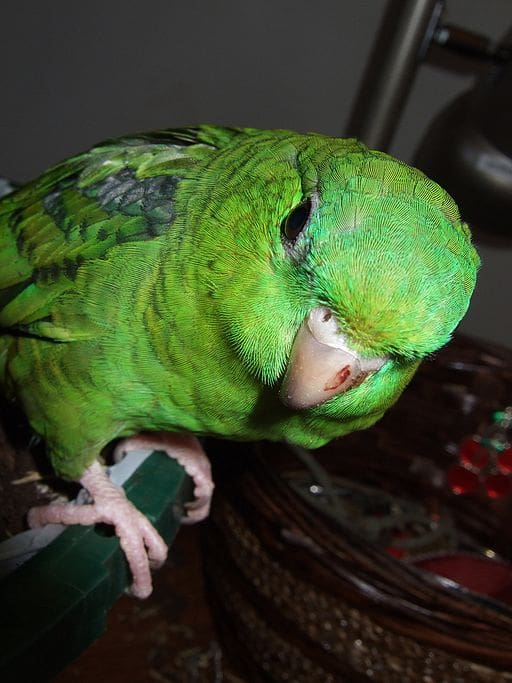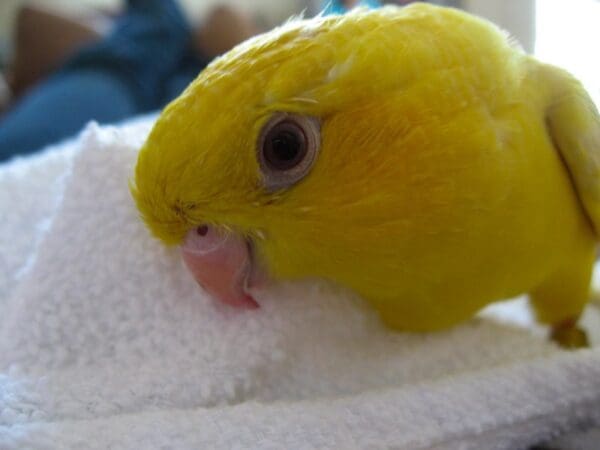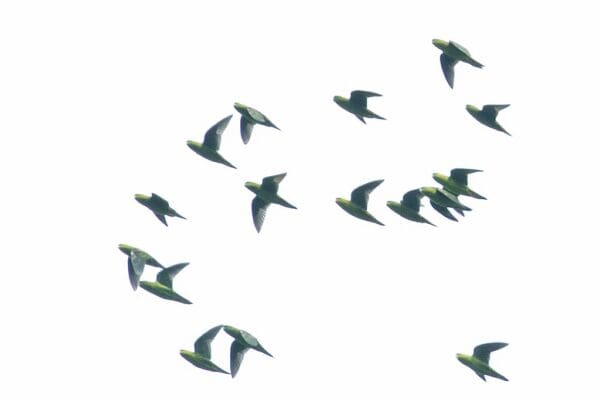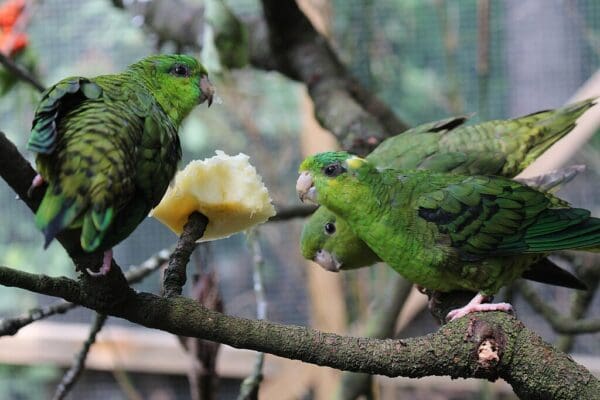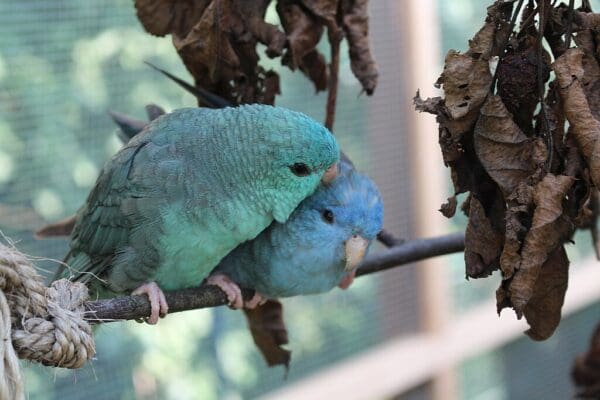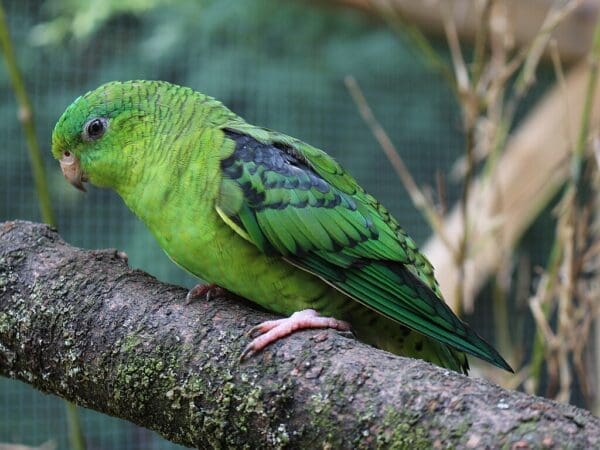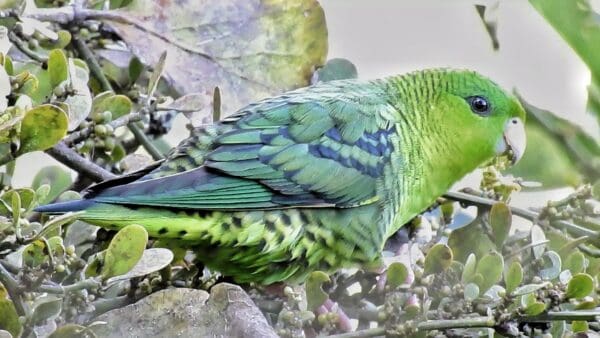Barred Parakeet
Also known as:
Lineolated Parakeet, Banded Parakeet, Catherine Parakeet
Also known as:
Lineolated Parakeet, Banded Parakeet, Catherine Parakeet
![© Viv Lynch [CC BY-SA 2.0] via Flickr A Barred Parakeet perches on a branch](https://parrots.org/wp-content/uploads/2023/01/wpt_Barred-Parakeet_1362-6-100x100.jpg)
![© Viv Lynch [CC BY-SA 2.0] via Flickr A Barred Parakeet perches on a branch](https://parrots.org/wp-content/uploads/2023/01/wpt_Barred-Parakeet_1362-7-100x100.jpg)
![© Deanna [CC BY-SA 2.0] via Flickr A companion Barred Parakeet perches in a cage](https://parrots.org/wp-content/uploads/2023/01/wpt_Barred-Parakeet_1362-5-100x100.jpg)
![© Lisa Lenscap [CC BY-SA 2.0] via Wikimedia Commons A companion Barred Parakeet peers into the camera](https://parrots.org/wp-content/uploads/2023/01/wpt_Barred-Parakeet_1362-1-100x100.jpg)
![© Caseyc (Own work) [Public domain] via Wikimedia Commons A companion lutino Barred Parakeet snuggles in a towel](https://parrots.org/wp-content/uploads/2023/01/wpt_Barred-Parakeet_1362-100x100.jpg)
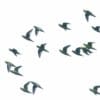
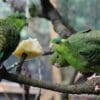
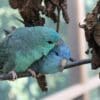
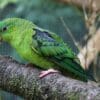
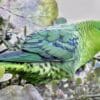
DID YOU KNOW?
The Barred Parakeet has many colour mutations.

Bolborhynchus

lineola
Size:
16 cm (6.2 in)
Weight:
42-52 g (1.5-1.8 oz)
Subspecies including nominate:
two: B.l. lineola, B.l. tigrinus
Colour Adult:
B.l. lineola: Male-in general green in colour; black barring on upperparts except for crown; olive/green flanks and sides of breast with black/green barring; black bend of wing; blue/green underwing coverts and undersides of flight feathers; dark green tail, the centre feathers widely edged with black. Beak pale horn in colour tinged with pink. Eye dark brown. Female-narrower black barring on upperparts; very narrow black edging to centre tail feathers.
B.l. tigrinus: Both adults darker green, with stronger black barring.
Colour Juvenile:
B.l. lineola: Paler and fainter barring than in female.
Call:
Calls are soft, but far carrying notes on an ascending scale; in chorus by flocking birds. Alarm call is series of slurred notes prior to taking flight. Also nasal chattering heard while feeding.
More Information:
Content Sources:
CITES
BirdLife International
Cornell Lab of Ornithology/Birds of the World
Parrots: A Guide to Parrots of the World, Juniper and Parr, 1998
Parrots of the World, Forshaw, 2006. 2010 edition
Lexicon of Parrots, Thomas Arndt.
Parrots in Aviculture, Low, 1992.
Parrots: Their Care and Breeding, Low, 1986.
Captive Status:
Quite common in parts of Europe, less so elsewhere.
Longevity:
15+ yrs
Housing:
Enclosure or aviary, indoors or outdoors (in warm climate), minimum length 1.2 m (4 ft).
Diet:
Small seed mix such as: canary, millet and smaller amounts of oats, buckwheat, safflower and a little hemp; limited sunflower seed; spray millet; green leaves such as: Swiss chard, lettuce, sowthistle, dandelion, chickweed; seeding grasses; rearing food made from hard-boiled egg, wholegrain bread and carrot, all ground to crumbly consistency; nectar as a treat; complete pellet.
Enrichment:
Likes to climb so provide numerous perches, swings, ropes and ladders; puzzle/foraging toys, some chewable toys such as heat-sterilized pine cones, wooden and vegetable tanned leather toys. Also provide shallow water bowls for bathing.
Nest Box Size:
Diagonal nest box 10″ x 6″ x 6″ ( 25.4 cm x 15 cm x 15 cm) or vertical box 7″ x 7″ x 12″ (17.8 cm x 17.8 cm x 30.5 cm).
Clutch Size:
3-6
Fledging Age:
5 weeks
Hatch Weight:
—
Peak Weight:
—
Weaning Weight:
—
World Population:
50,000-500,000, stable.
IUCN Red List Status:
Least Concern
CITES Listing:
Appendix II
Threat Summary:
The population trend is unknown. Tree cover within the range is lost at 4% over three generations. As the species is also found in edge and secondary habitat, the current rate of tree loss may not be affecting the population. There is no evidence that the species is subject to trapping pressure. Therefore it is suspected to be stable for any declines or substantial threats.
Range:
B.l. lineola: S Mexico south to W Panama.
B.l. tigrinus: NW Venezuela and Colombia south to C Peru.
Habitat:
Found from 1500-3000 m (4920-9840 ft) in montane forests in subtropical zone, humid evergreen forest, pine forest, dry open woodland, clearings and pastures with tall trees.
Wild Diet:
Eats catkins, bamboo seeds and plant material/fruit from Myrtis, Heliocarpus and Miconia sp.
Ecology and Behaviour:
Sometimes forages in cultivated areas for maize. Social; forms large communal roosts in tops of tall trees. Seen in smaller groups or pairs during dry season.
Clutch and Egg Size:
4-5 eggs
Breeding Season:
December, Panama; July-August, Colombia. Nest is likely a tree cavity.
Related Links:
—
